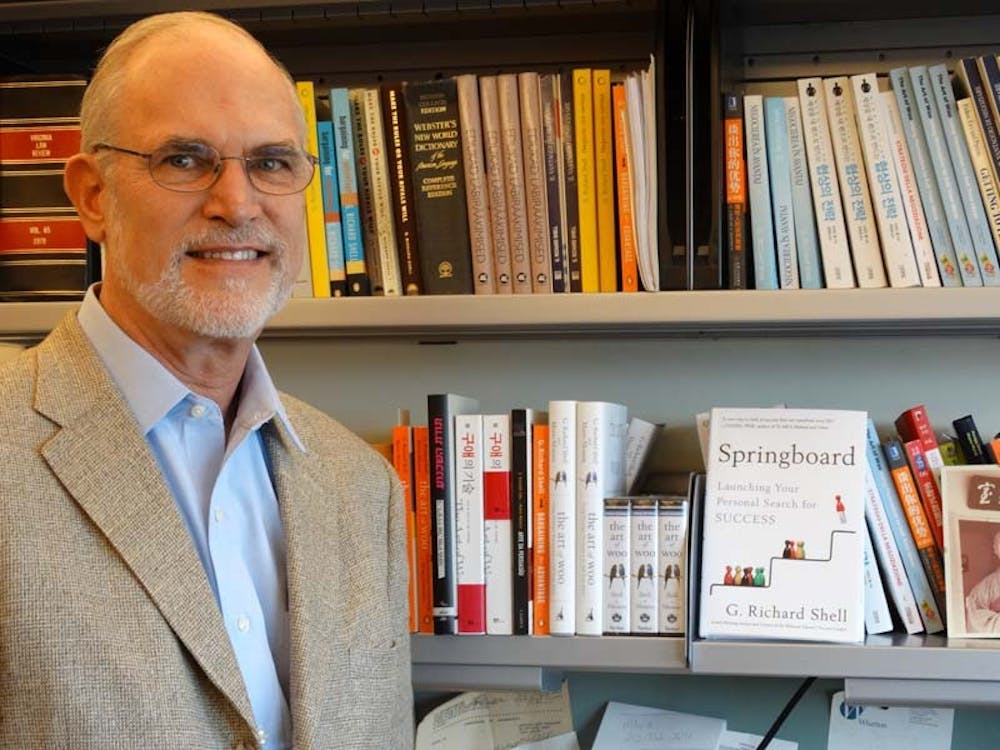
A recent survey shows that almost 60 percent of people in the workforce are unhappy with their career.
Legal studies professor G. Richard Shell, author of new book “Springboard: Launching your Personal Search for Success” and professor of the popular Wharton School “Success” course, has a mission to lower that number.
He’s been doing that at Wharton since 2005 when his course, “Literature for Success,” first launched. Now, with his new book, people can learn to define success as it means to them without having to take his class.
The book, released on Aug. 15, is “out of the course, about the course, about the students in the course, but also different because it’s not a course,” Shell said. “It’s a book for readers to use without a classroom.”
Shell begins the book with his own path to success. He went from college with a full-time military scholarship, to a job painting houses for a living, to “rock bottom” in Kabul, to where he is now — a full-time professor at Wharton.
Related: Wharton professor hosts negotiation workshop
But “Springboard” is not an autobiography. It intertwines Shell’s personal anecdotes with works of philosophy, works of literature and exercises for the reader — much like his course. It even includes several student narratives from his class.
“The book is very grounded in what the students told me about what their life is like,” Shell said, referring to the conclusion, which begins with a story from a former student who now lives in the Philippines. “The book is dedicated to my students. I consider them my teachers,” he added.
So how does one go about defining success? The book looks at this question in depth, but Shell summarizes it in three steps. The first is to realize that you may not have a clue as to what you want to do in life.
“Let the uncertainty cook a little instead of jumping to eliminate it,” Shell advised.
Related: Wharton professor speaks about the ‘business of life’
The second is to ask the question “What can you do better than most?” For most people, there are probably four or five things that they do better than others, Shell said. “You have to recognize what those skills are and then recognize the combination. The use of those is really the key.”
The “lock,” and the third step, is to find someone who will pay you to do that.
Wharton senior Guy Viner took Shell’s class last spring and found his own definition of success. He came into the class “kind of lost,” and left more “self-aware,” he said.
But for Viner, the best parts of the course were the relationships he formed with his classmates and with Shell.
“I wish he were my grandfather,” Viner said. “It’s really difficult to build a relationship with staff or faculty. [Shell] cares really genuinely about the students in the class.”
The course, which is very popular, is limited to 35 students, so Shell can learn about each and every one of his students.
Wharton junior Alexandra Gorman got into the class when a friend dropped it due to on-campus recruiting.
“Everyone says college is the best four years of your life,” Gorman said, “and [in] this class, you are almost graded on learning about yourself and exploring.”
Shell is teaching the course this semester and incorporating elements from the book into the class. In the spring he will go on to teach another popular course on negotiation, which also provided the basis for a book, “Bargaining for Advantage: Negotiation Strategies for Reasonable People.”
Shell wants students to realize that not everyone has their life figured out — in fact, most people don’t.
“The truth is that the majority of students don’t have a clear idea of what they want to do,” Shell said. “And that’s great. It’s like the weather — you have to accept it. Fighting it is the problem.”
The Daily Pennsylvanian is an independent, student-run newspaper. Please consider making a donation to support the coverage that shapes the University. Your generosity ensures a future of strong journalism at Penn.
DonatePlease note All comments are eligible for publication in The Daily Pennsylvanian.








